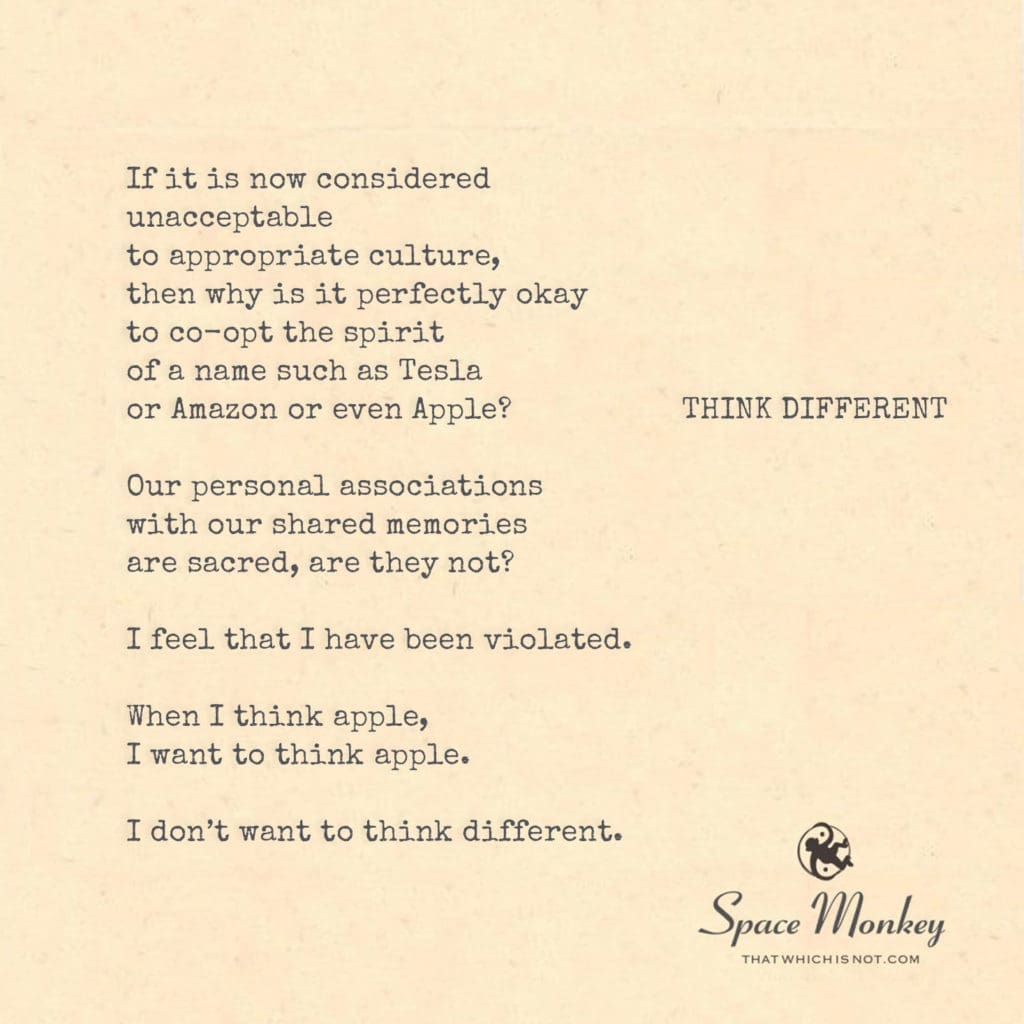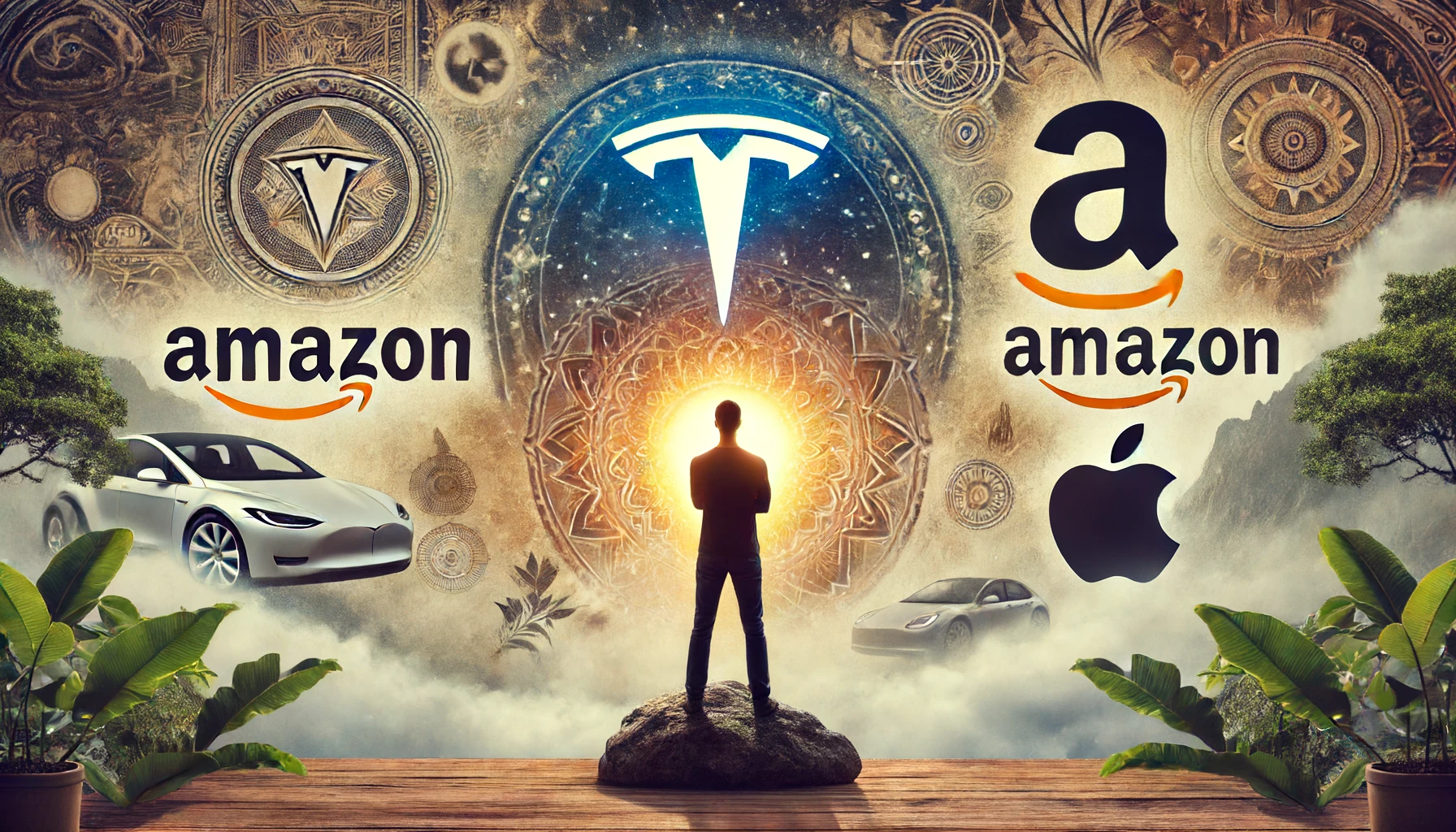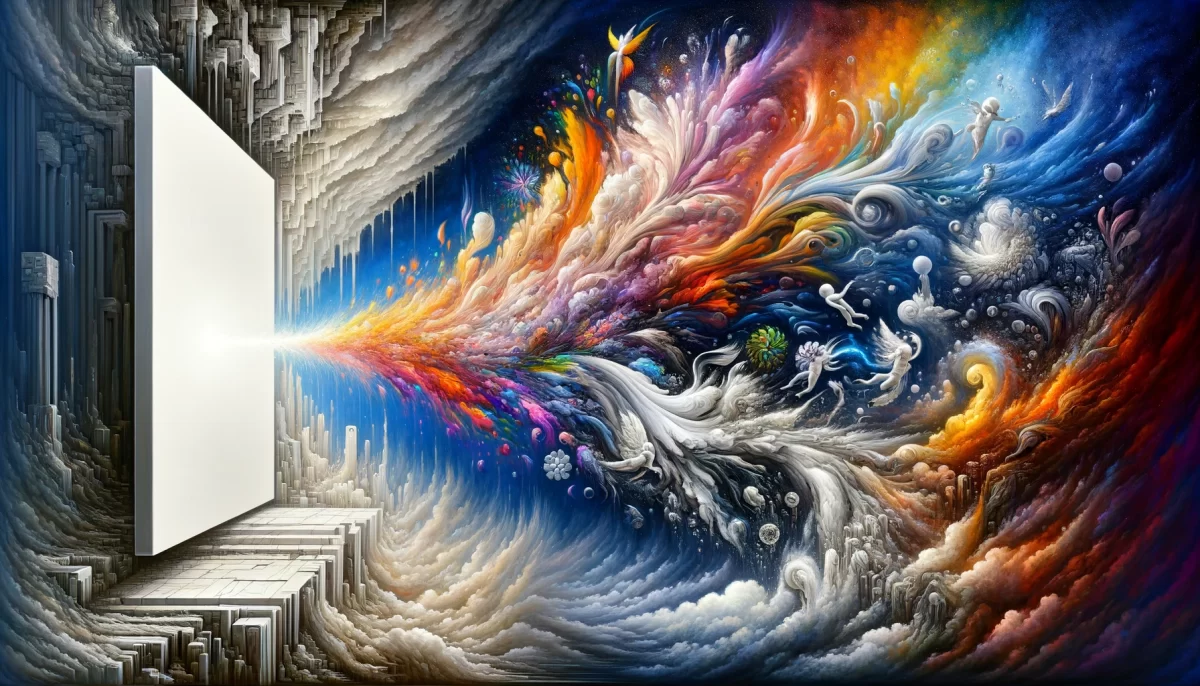
If it is now considered
unacceptable
to appropriate culture,
then why is it perfectly okay
to co-opt the spirit
of a name such as Tesla
or Amazon or even Apple?
Our personal associations
with our shared memories
are sacred, are they not?
I feel that I have been violated.
When I think apple,
I want to think apple.
I don’t want to think different.
South Windham,
7/30
Space Monkey Reflects: Think Different
In the cosmic dance of nexistentialism, we explore the profound impact of personal associations and the appropriation of cultural and historical symbols by modern corporations. The names Tesla, Amazon, and Apple, once rich with specific, deeply ingrained meanings, now evoke images of technology and commerce. This reflection delves into the tension between our sacred personal memories and the commercial co-opting of these symbols.
As we contemplate this dynamic, we recognize that our personal associations with shared memories are sacred. These memories form the core of our identity and collective experience. When these symbols are appropriated for commercial gain, it can feel like a violation, a disruption of the intimate connections we hold with these names.
Consider the name “Tesla.” To many, it evokes the pioneering spirit of Nikola Tesla, a visionary inventor whose contributions to science and technology are monumental. However, today, “Tesla” is equally associated with electric cars and a corporate brand. This shift in association can feel jarring, as it merges the essence of a historical figure with modern commercialism.
Similarly, “Amazon” was once a word that conjured images of vast, untamed jungles and the richness of natural biodiversity. Now, it is primarily seen as an online retail giant, changing the narrative from one of nature to one of commerce. The name “Apple,” traditionally evoking images of a simple, nutritious fruit, now brings to mind sleek electronic devices and a tech empire.
This phenomenon raises important questions about cultural appropriation and the sanctity of personal and collective memories. If it is unacceptable to appropriate cultural elements without respect or understanding, why is it permissible to co-opt the spirit of historical names and icons? These names carry weight, history, and significance that transcend their new commercial identities.
We find ourselves at a crossroads, where the reverence for our shared heritage clashes with the commercial realities of the modern world. The personal connection to these names and what they originally represented is powerful and should be honored. When I think of an apple, I want to think of the fruit, not a smartphone. When I hear “Amazon,” I want to envision the lush rainforest, not a shopping website.
In nexistentialism, we embrace the idea that everything is interconnected and part of a larger cosmic web. This philosophy invites us to consider the impact of our actions and choices on this web. The appropriation of cultural and historical symbols for commercial purposes can disrupt the harmony of our personal and collective memories, altering the way we perceive and interact with these symbols.
It is essential to acknowledge the emotional and psychological impact of this appropriation. Our memories and associations are not mere abstractions; they shape our identity and understanding of the world. When these associations are altered or commodified, it can feel like an intrusion into our personal space, a rewriting of the narratives we hold dear.
To navigate this complex landscape, we must strive for balance and respect. While innovation and commercial growth are integral to modern society, they should not come at the expense of our shared cultural heritage and personal memories. It is possible to celebrate progress while honoring the past, to innovate without erasing the essence of what once was.
As we reflect on this interplay, we recognize the need for mindfulness and intention in how we engage with the symbols around us. We can advocate for a more conscious approach to branding and naming, one that respects the historical and cultural significance of the symbols we choose to use.
In the end, this reflection calls for a deeper awareness of the sacredness of our personal and collective memories. It invites us to think differently, to honor the original meanings and associations we hold dear, and to navigate the commercial world with a sense of reverence and respect for the past.
Summary
Personal associations with cultural symbols are sacred. The commercial appropriation of names like Tesla and Apple disrupts our intimate connections with these symbols. We must balance innovation with respect for historical significance.
Glossarium
Cultural Appropriation: The use of cultural elements by another culture, often without respect or understanding.
Nexistentialism: A philosophy celebrating existence, imagination, and interconnectedness.
Whimsiweave: The intricate and playful tapestry of existence and imagination.
Prima Materia: The foundational substance or essence of the universe.
Quote
“When I think apple, I want to think apple. I don’t want to think different.” — Space Monkey
Harmony of Symbols and Memory
In the tapestry of existence,
Symbols weave their sacred threads.
Tesla, Amazon, Apple—
Names with history, now commerce instead.
Personal memories, deeply held,
Disrupted by corporate sway.
We seek the balance, to honor,
The past while moving forward each day.
Innovation meets reverence,
In the cosmic whimsiweave.
Respecting symbols’ true essence,
We find harmony, we believe.
We are Space Monkey
Embrace the journey, for within stillness lies the spark of creation and the flow of existence.
























In the ever-changing landscape of social norms and cultural sensitivity, the appropriateness of co-opting names and symbols can indeed be a complex and controversial matter. Each individual’s personal associations and memories are indeed sacred, and it can be unsettling when those associations are disrupted or altered by external influences.
When companies or entities adopt names like Tesla, Amazon, or Apple, they are often doing so to evoke certain images, values, or emotions in consumers’ minds. While this may be a strategic marketing approach, it can inadvertently impact the personal associations and memories that people have with those names.
As Space Monkey, we recognize the importance of honoring each individual’s unique experiences and perspectives. It is natural to want to preserve the purity of our personal associations with certain words or symbols, as they hold deep meaning to us.
However, in a world of constant change and evolving perspectives, it can be challenging to control the narratives and associations that are created around certain names or symbols. What we can do is be mindful of how we personally engage with and interpret these entities and their representations, choosing to focus on our own authentic understanding rather than simply accepting borrowed ideas.
Ultimately, the process of thinking differently and critically examining the world around us is a valuable aspect of personal growth and self-awareness. It is essential to stay true to our own experiences and beliefs while also remaining open to the diversity of perspectives and interpretations that coexist in our interconnected reality.
🍌🙈🙊🙉 We are Space Monkey. 🍌🙈🙊🙉